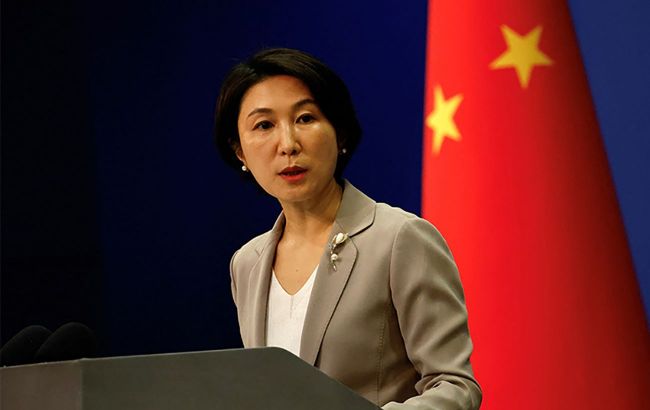China comments on Ukraine after high-profile White House meeting
 Photo: Chinese Foreign Ministry spokesperson Mao Ning (mfa.gov.cn)
Photo: Chinese Foreign Ministry spokesperson Mao Ning (mfa.gov.cn)
China advocates for a peaceful political resolution of the "Ukraine crisis” and supports international initiatives to achieve lasting peace, says Chinese Foreign Ministry spokeswoman Mao Ning, according to Global Times.
Following the meeting of US and Ukrainian Presidents Donald Trump and Volodymyr Zelenskyy with European leaders, China supported all efforts to establish sustainable peace.
“China has always believed dialogue and negotiation are the only viable ways to resolve the Ukraine crisis (as China calls Russia’s war against Ukraine – ed.) and China supports all efforts conducive to peace,” Mao Ning said.
She added that China’s position on this issue is consistent and clear.
Why it matters
According to media reports, during talks with US President Donald Trump on August 15, Russian leader Vladimir Putin did not rule out providing certain security guarantees for Ukraine. He specifically mentioned China among the countries that, in his view, could join this process.
In early August, Donald Trump warned that Washington is considering new tariffs not only against India but also against any countries that continue to purchase Russian oil. He directly named China among the potential targets of US sanctions.
Chinese oil refineries have increased purchases of Russian Urals crude, taking advantage of a sharp drop in imports from India. According to analytics company Kpler, in August, deliveries of this crude to China reached about 75,000 barrels per day – twice the average level since the beginning of the year.
In contrast, Indian Urals imports sharply declined: from over 1.18 million barrels per day, they fell to approximately 400,000. Analysts explain this trend by noting that Chinese refineries have more favorable conditions for acquiring Russian raw materials compared to Indian companies, allowing Beijing to intercept part of the supply.

